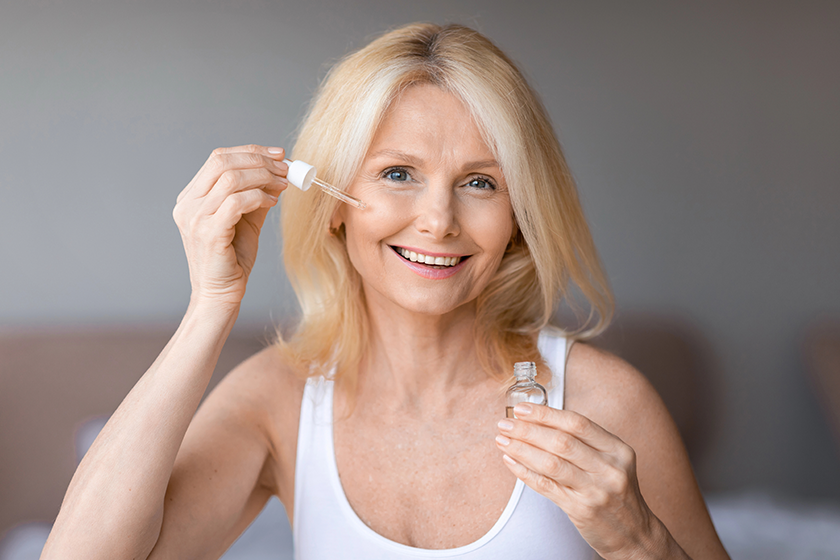Retinoids for anti-aging have become a trusted solution for those seeking to reduce signs of aging and achieve a more youthful complexion. Derived from vitamin A, retinoids work by encouraging skin cell turnover, helping to minimize fine lines, wrinkles and dark spots. However, how exactly do they work, and why are they so effective?
What Are Retinoids?
Retinoids are compounds derived from vitamin A and they come in several forms, including prescription-strength options like tretinoin and over-the-counter products containing retinol. Each form of retinoid has a similar function but can vary in strength and effectiveness. Retinoids are often recommended for anti-aging because they target key concerns associated with aging, including fine lines, uneven skin tone and loss of elasticity.
How Do Retinoids Work on Aging Skin?
When applied to the skin, retinoids go beneath the surface. They stimulate cell turnover and promoting collagen production. Here’s a closer look at how retinoids work to address various signs of aging:
- Increase Cell Turnover: Retinoids accelerate the rate at which skin cells are renewed. This process helps shed old skin cells and replaces them with fresh, younger cells. As new skin cells come to the surface, the skin looks smoother and fresher.
- Boost Collagen Production: Collagen is a protein that keeps skin firm and plump. As we age, collagen levels naturally decline, leading to wrinkles and sagging skin. Retinoids stimulate collagen production. This helps restore skin firmness and reduce the appearance of wrinkles.
- Even Out Skin Tone: Retinoids also help to reduce dark spots and hyperpigmentation by increasing cell turnover. Over time, this can lead to a more even and balanced skin tone.
Different Types of Retinoids
There are several types of retinoids available, each with a slightly different impact:
- Retinol (Over-the-Counter): Retinol is a gentler form of retinoid that’s widely available in over-the-counter products. It’s a great option for beginners or those with sensitive skin.
- Tretinoin (Prescription): This prescription-strength retinoid is much stronger than retinol and often recommended for more noticeable signs of aging. Tretinoin can produce faster results, but it may also cause more initial dryness and peeling.
- Adapalene (Available OTC and Prescription): Originally used for acne treatment, adapalene is now available over-the-counter and works well for anti-aging as it targets cell turnover and helps reduce inflammation.
How to Use Retinoids Safely
To get the best results, it’s needed to use retinoids carefully. Here are a few tips to keep in mind:
- If you’re new to retinoids, it’s best to start with a lower concentration or use them every other night. This helps the skin adjust and reduces the risk of irritation.
- Retinoids are sensitive to sunlight, so they should be applied in the evening. Use a small amount, as a little goes a long way.
- Retinoids can make the skin more sensitive to the sun. Wearing sunscreen daily protects your skin and enhances the benefits of your retinoid.
What Results Can You Expect?
While results take time, retinoids can bring noticeable improvements with consistent use. Most people begin to see a reduction in fine lines and an improvement in skin texture after a few months. With continued use, the benefits grow and many notice smoother, firmer and more even-toned skin.
In our retirement community, our exclusive senior living programs and senior living options are designed to support your overall wellness. We provide resources and assistance to help you maintain a healthy lifestyle, making sure you can enhance your well-being and enjoy a vibrant, refreshed life. Contact us today to learn more about our community.







